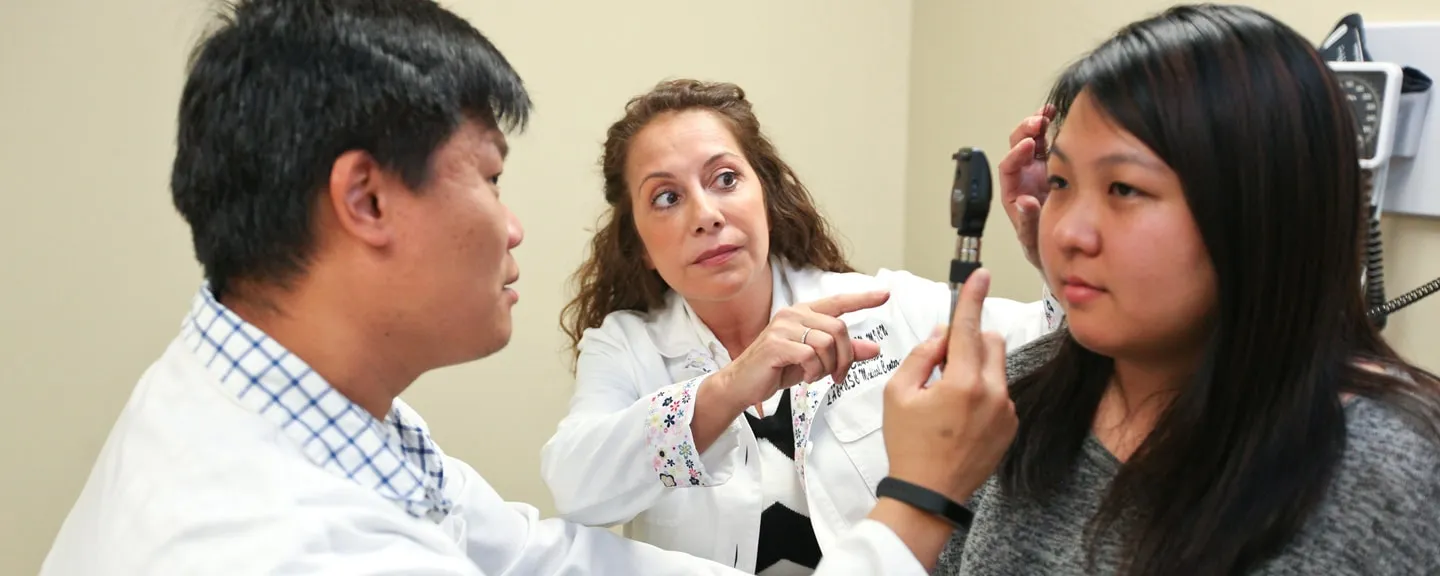- Home
- >
- APU Articles
- >
- News Article
What to Expect from the Clinical Nursing Experience
July 09, 2019 | Written By Ana Felce

Becoming a nurse and delivering the best care possible requires theoretical knowledge as well as practical and emotional intelligence. After all, the clinical nursing experience involves completing real-world training and working alongside experienced professionals!
Successfully navigating the transition from theory to practice can make the difference between simply earning a nursing degree and becoming an excellent nurse capable of empathizing with patients. Here are answers to some of the most common questions about the opportunity.
What Is the Clinical Nursing Experience and How Can I Prepare?
The clinical nursing experience is part of the training needed to become a qualified nurse. This is where students bring classroom learning to medical centers and hospitals.
At Azuza Pacific University, you’ll start training in medical centers early on in the program, giving you time to grow, explore, and learn in various specializations. You’ll gain experience with a wide variety of patients and situations, and discover where you may hope to work in the future.
Grace Moorefield PhD, APRN-BC, the associate dean of APU’s Division of Undergraduate Departments in the School of Nursing, tells students to approach each interaction with a sense of gravity. “When you enter into a clinical setting as a student nurse, remember that you are being given the profound privilege of entering into sacred relationships with other human beings in need of your care,” she said.
It’s important that students let their personality, strengths, abilities, and faith shine throughout the experience—as this can help them connect with patients.
How Can I Make the Most of the Experience?
Moorefield advised nursing students to apply what they are learning in the classroom to their clinical experiences. She noted that in addition to gaining proficiency with technical and professional skills, students should focus on the reasons they’ve been called to the field.
“If you don’t understand why you are doing what you are doing, or are unable to articulate the scientific evidence behind why you are doing what you are doing, you may end up with a diploma, and maybe even pass the board exam, but you won’t be prepared for the real world of nursing,” Moorefield said.
She also advised students to never stop learning and to strive to become the best nurses possible. “Ask questions and never get to the point where you think you know it all—because you never will—and learn to work with all members of the healthcare team,” she suggested. If you’re open to learning and working with others, you will gain invaluable skills that will help you as a future registered nurse.
Will the Experience Prepare Me for the Nursing Profession?
Renee Pozza, PhD, RN, CNS, FNP-BC, senior associate dean in APU’s School of Nursing, firmly believes that the experience will be beneficial post-graduation; it helps students feel prepared to enter the workforce.
“It’s a great opportunity to network and build relationships that can help you with job placement and career advancement after graduation,” Pozza said. She also suggested that students look for mentors who can support their learning and professional development.
During the experience, it’s important for students to consider that the institutions where they complete their clinical experiences could become future employers. Pozza noted that APU nursing students consistently finish the program prepared for a long, successful career in nursing. In fact, graduates are so well-prepared that 80 percent are hired within three months of graduation—and 100 percent find employment within six months.